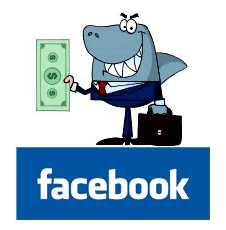|

Musicians routinely sign away their souls to record labels for the one-in-a-million shot of being the next mega-star and now tech companies are falling for the same ploy. Some people deride business-illiterate artists but praise technology companies who are making an identical decision.
I've spoken to many artists about their decision to turn over their copyrights to a music company. They tell of being flattered by the courting label as well as the lure of a chance of stardom. After signing they realize that unless they are the rare multi-platinum multi-album success story, their royalties will never amount to much (and surely not the millions they had hoped). Some realize they'll need to generate revenue through other outlets like touring, merchandise, licensing, etc. to make a comfortable living. Record labels wised up to this and now demand "360" deals where they not only own the copyrights forever but also get a percentage of revenue from all other sources. These deals are even more disadvantageous to artists yet they continue to sign with record labels determined to scratch off their one-in-a-million lottery ticket chance.
Recently, Facebook announced a new music initiative and the fascinating development was not the new music functionality but how the participating companies subjugated themselves to Facebook. Here's what happened. Facebook approached digital music companies and invited them to be a part of their music effort. Facebook held out the prospect of getting their music in front of 750 million Facebook customers! To participate they had to agree to a list of requirements in order to be on the Facebook platform (including how their Facebook app would look and function). Those seem like reasonable requests however, later demands graduated to requiring all account signup to be done through Facebook.
The CEO of one of the participating companies (Spotify) stated, "There's been a big barrier to sign-up, we wanted to remove that, and make it a seamless experience." Signing up isn't a giant barrier. The barrier was pressure from Facebook. Companies were told that unless they turned off non-Facebook signups (relegating themselves to a barnacle on the USS Facebook) they would not receive promotion. Two companies succumbed to Facebook's demands: Spotify and MOG. Going forward new users must sign up with Facebook. Others such as Slacker, Rdio and Rhapsody resisted which is why they were not invited on stage for the launch.
By agreeing to turn over their user data these companies effectively give Facebook complete control over their business. Facebook owns the user not the music company. Facebook owns the data. Facebook in fact controls the entire experience and can demand changes anytime they wish. They can even demand a monetary payoff in the future or shutoff the service. This is not theory. Facebook did this to the game company Zynga when they extorted 30% of all their revenues by threatening to block their service. If a digital music company experiences any level of success on Facebook they can expect the same demands.
Why would any digital music company agree to such onerous terms? Because they are chasing the dream. Just as the musician is enamored by the prospects of becoming the next Madonna or Lady Gaga, the tech CEO fantasizes about becoming the next multi-billion dollar Zynga. They think that if even a small percentage of Facebook millions experience their service and use/pay for it then stardom will be their destiny. The reality is that they have committed their future to a deal they can never escape. The odds of a successful outcome are similar to that of winning the mega prize in the lottery - it happens but it's rare. More likely they will see little to modest action and be subservient to Facebook for eternity.
I appreciate the lure to struggling companies to agree to whatever terms Facebook demands to gain access to their users. One can hardly blame Facebook for using the dominance they have built in the industry to garner the best deal for themselves. That doesn't change the economics of the deal which are similar to that of an artist signing a deal with a record label with the most likely outcome being disappointment and regret.
-- MR
The Michael's Minute Meter
 |
|
 |
|
 |
|
 |
 |  | AGREE |
 | DISAGREE |
 | MIXED |
 |  | | Total Votes: 147 |  |
| | |
View the Michael's Minute Meter Report
|